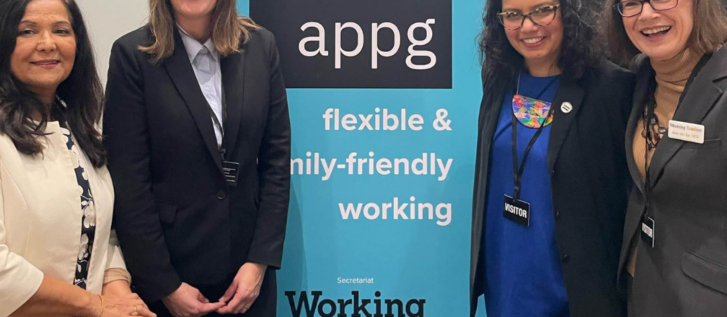
Exploring careers in construction
Construction is a huge industry that spans everything from architecture and house building...read more
There’s no excuse for employers or employees after report outlines dozens of flexible models

100 Ways to Work Flexibly is a new campaign to encourage employers and employees to think creatively about work.
The campaign has been started by the Women’s Business Council, but the organisation has been careful to include lots of men among its 100 case studies of people working flexibly.
They’ve put together a report featuring 100 versions of flexible working. 45 of them involve men choosing to turn their back on the 9-5, generally because they want more time with their families.
Examples include an RBS executive who has compressed his hours into a nine day fortnight, a BBC editor who does a job share and a man who uses annualised hours to fit in a few weeks filming as an extra on Game of Thrones!
The launch of the 100 Ways to Work Flexibly report last week was followed by a question and answer session. The panel consisted of Roger White, CEO of Greggs, Hilary Spencer, Director of the Government Equalities Office, and Hero Brown, founder of Muddy Stilettos, a lifestyle site for women.
Mini Athletics is a completely unique business which makes a difference to the lives of children and franchisees.
Greggs boss Roger White addressed the issue of men working flexibly directly. He said the obstacles to greater flexible working were not practical, but cultural. Associations of flexible working with career compromise could put men off asking for different working patterns. More examples of career progression with flex are needed.
He lives in Berkshire and commutes to Greggs’ head office in Newcastle three days a week. That helps to counter a culture of presenteeism, he said. He also spoke about jobs that might be more difficult with regard to flexible working, like sandwich making and customer-facing roles. Greggs tried to make these work on a local basis, for example, by encouraging flexible approaches to part-time working which meant people helped each other out in the case of family emergencies and other circumstances. This had increased retention.
White was keen to tackle the issue of progression, but said it was often associated with relocating to be nearer head office, which could be difficult for some workers, particularly those with caring responsibilities. He added that more needed to be done to reward line managers for encouraging flexible working, saying it should be a core competency in management evaluations.
Hilary Spencer said flexible working was often associated with part-time working and part-time jobs often didn’t lead to progression.
Part-time working could help people stay in work which could boost their confidence, but flexible working such as remote working, compressed hours and flexi hours were vital for progression to the next level, although she also mentioned how job shares were helping people work reduced hours in senior roles in the civil service. Progression should not just be based on working 80-hour weeks in the office, she said.

New flexible working regulations came in over the weekend. But what do they mean and how does the process work for making a request for flexible... read more

HR expert Alan Price outlines the legislative changes coming up in April that will help working families. read more

A new parliamentary group aims to push the conversation about flexible working further. read more

Will we all be working in the metaverse in the future, what are the implications and are our children equipped for a more virtual world of work? read more